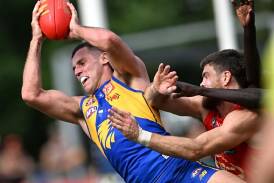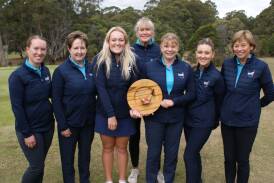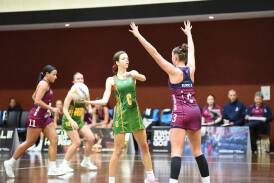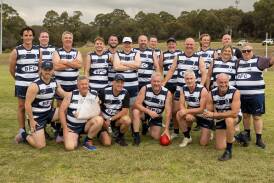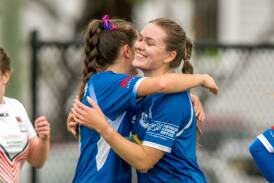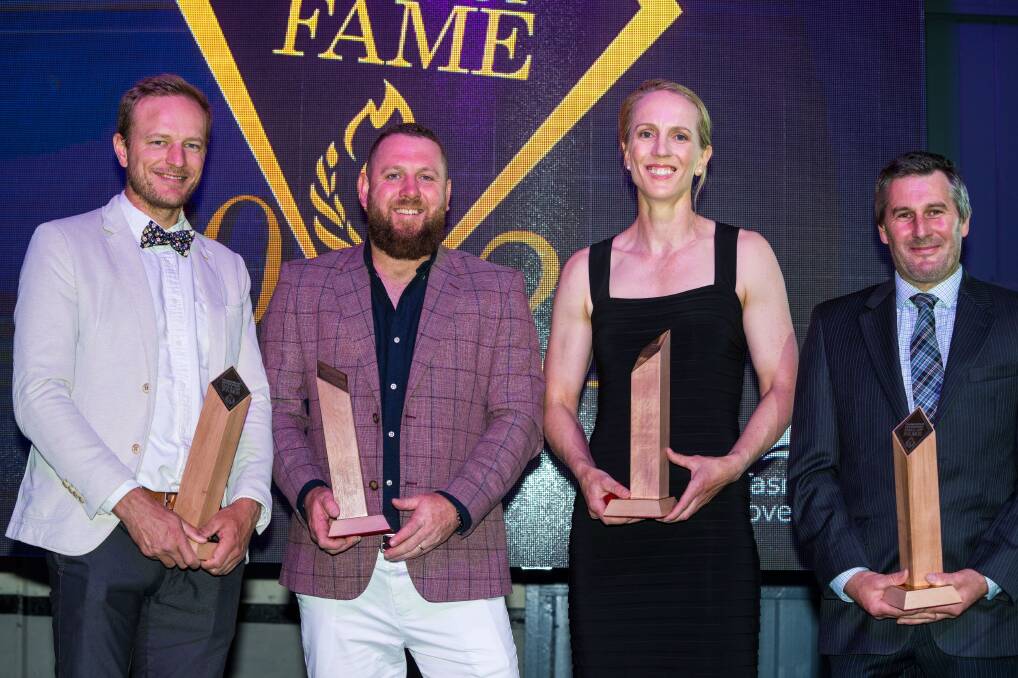
Four Tasmanians had two things in common on Thursday night.
Subscribe now for unlimited access.
$0/
(min cost $0)
or signup to continue reading
Tim Deavin, Matthew Goss, Kerry Hore and Sid Taberlay shared the honour of being inducted into the Tasmanian Sporting Hall of Fame but also a remarkably similar perspective to both their home state and elite sporting achievements.
Separated by six years with eight Olympic Games appearances between them, the quartet were as humble about their respective accomplishments as they were proud of Tasmania's disproportionate involvement in Australian sporting success.
"Per capita, we're easily the best for nationwide representation," Deavin said. "We definitely bat above ourselves."
While using a cricket analogy, his comments related to hockey but were just as relevant to cycling and rowing, the sports which provided the other three inductees.
RELATED NEWS:
Interviewed by unflappable MC Kim Millar, each inductee gave a frank assessment of their careers, offered golden advice to those wishing to follow their path and added light-hearted reflections of shared journeys from one of the planet's remotest islands to its sporting pinnacles.
Tales varied from encounters with sporting greatness to man-eating predators, each told with frequent self-deprecation which almost belied the level of combined achievement.
Introducing the quartet, Dana Faletic - who was among seven inductees in 2016 - summed up the theme when describing her 2003 world championship and 2004 Olympic crewmate.
Reading out a haiku poem tribute and explaining that the best adjectives to describe Hore would be: "tough", "hard-working", "consistent", "amusing", "humble" and, best of all, "tall", Faletic added: "Kerry is the most impressive athlete I've ever had the pleasure of sweating alongside. She is the last person to admit to her achievements, but first person who should."
Deavin, who played 138 internationals and contested the 2012 and '16 Olympics but said his career highlight was once being carried home by NBA star Matt Dellavedova, detailed Tasmania's impressive hockey pedigree.
Part of a distinguished group of Tasmanian Kookaburras including Daniel Sproule, Matthew Wells, David Guest, Eddie Ockenden and Josh Beltz, Deavin also cited the state's national league victory in 2014 and two subsequent third-place finishes.
Renowned as being among the fittest in the national program, the 37-year-old concluded with this inspirational gem for the state's next generation of athletes: "What you put in, is what you get out. The more you train, the better you get. You've got to try and give yourself the best chance."
Having also been a keen young footballer before hitting the heights at both track and road cycling world championships, Goss explained how preferences prompted him to make a couple of key decisions.
"As a young fella, I was doing a bit of everything - driving to one end of the state to play football and the other end for cycling. The choice had to be made," said the 35-year-old.
A track world title came early before the road beckoned after a breakout success in his home town.
"You could do three or four ks on the track, but I chose to do 300 on the road," he said, explaining how outsprinting Stuart O'Grady to win the 2004 Launceston Classic was a wise career move, leading to the 2012 Olympic Games, nine Grand Tours, 15 classics and 17 major wins including the 2011 Milan-San Remo.
"Fortunately I got something right that day and that opened doors for me. I like to remind him that I was 18 when I beat him but we became teammates and mates over the years."
It was not lost on the two Launceston inductees that they have both gone into pub ownership, prompting Goss to comment: "We'll have to exchange some notes."
Recalling the countless dawn training sessions which saw her become the first female Australian rower to attend four Olympic Games, Hore confessed: "It makes me tired just thinking about it now."
Admitting to a sense of disbelief when she first walked into an Olympic village in Athens, the 40-year-old oozed gratitude and honesty, not least in how suited she initially was to her sport.
"I was lucky to do what I did for as long as I did," she said. "I wasn't very good at it but with persistence realised I could be. I was terrible. I'd always tip in. But I'm a pretty determined person, so I kept going. We have the best water in the world down here and I loved it."
Asked what advice she would give her young self, Hore followed up her "I was terrible" assessment with the answer: "I wish I had not been so hard on myself."
Hore's Athens Olympic teammate and fellow Hobartian, Taberlay was a five-time national mountain bike champion but admitted one of his most publicised achievements was colliding with a bear in Idaho.
"Because it was after Mick Dundee and Steve Irwin, Americans obviously thought only an Aussie guy would be silly enough to take on a bear," said the 41-year-old. "It just ran out of the bush. When you're going 60k an hour and a bear runs out, there's not much you can do and I hit it, went over its back and lived to tell the story."
Explaining how he is getting back into the sport with his seven-year-old son, Theo, Taberlay added to the evening's catalogue of sage advice. "I'm trying to keep it fun. I found you always did better when you were enjoying it. When you try and force it, it won't happen."


